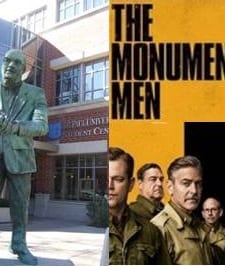 “In the face of these immense efforts which already preoccupy the entire human race, people raise numerous questions among themselves: What is the meaning and value of this feverish activity? How should all these things be used? To what goal are the strivings of individuals and societies heading?”
“In the face of these immense efforts which already preoccupy the entire human race, people raise numerous questions among themselves: What is the meaning and value of this feverish activity? How should all these things be used? To what goal are the strivings of individuals and societies heading?”
From: Gaudium et Spes (Joy and Hope): The Pastoral Constitution on the Church in the Modern World, a document of the Second Vatican Council.
This year, as the Catholic community continues to remember the 50th anniversary of the Second Vatican Council (1962-1965), this quote resurfaced. It struck me again as relevant even 50 years after it was written. While praising the rapid advances made in science, technology, economics and politics, among other areas of human knowledge and culture it raises the essential, fundamental human question:
“To what end are we oriented?”
Individually and collectively, this is the central question which determines our moral compass, the foundation for our daily choices, our sense of meaning and purpose, and what is good, true, and beautiful. How we answer defines who we are and seek to be. Ideally, one’s ultimate hope is one that is worth living for, worth persisting through the challenges of life in order to achieve, worth taking courageous steps to grow towards, worth making sacrifices to attain, and one in which we find our deepest joy as we invest our life to make real.
“Success” alone doesn’t get us to the peace we desire, unless it is directed towards a meaningful and purposeful hope or purpose. Material possessions, career accomplishments, safety, comfort, or sexual gratification cannot alleviate the underlying anxiety which exists when people lack some good and meaningful vision for to orient their life, their time, their energy, their will, their emotional life, and their decisions. If we are oriented towards that which is ultimately fleeting, unfulfilling or entirely self-oriented, we remain fundamentally anxious as human people, and we tend to develop the habit of responding out of this anxiety. Anxiety becomes the voice we begin to most recognize and falsely identify as our own.
Part of the gift of a spiritual tradition and a faith community to ground you and surround you is that it offers the possibility of helping keep you oriented towards a meaningful end, one which leads ultimately towards joy and fulfillment rather than ongoing anxiety. There is much in our society, culture, and everyday lives that steers us off-course and entices us to pursue only fleeting, material, and ultimately unsatisfactory pleasures. As human beings, we need some forms of regular spiritual practice (meditation, prayer, journaling, walks in nature, spiritual reading, etc.) and we need each other in order to keep us honest and centered on that which is fulfilling in the end, lest we spend too much of our time and too many of our days pursuing empty promises.
I have found that to be in an ongoing, right relationship with the ultimate source of hope and joy is exactly what it means to be in relationship with God, the fruit of which is a truly desirable end: to know oneself embraced by love and to desire only to love in return.
Mark Laboe is Associate Vice President for University Ministry at DePaul University

